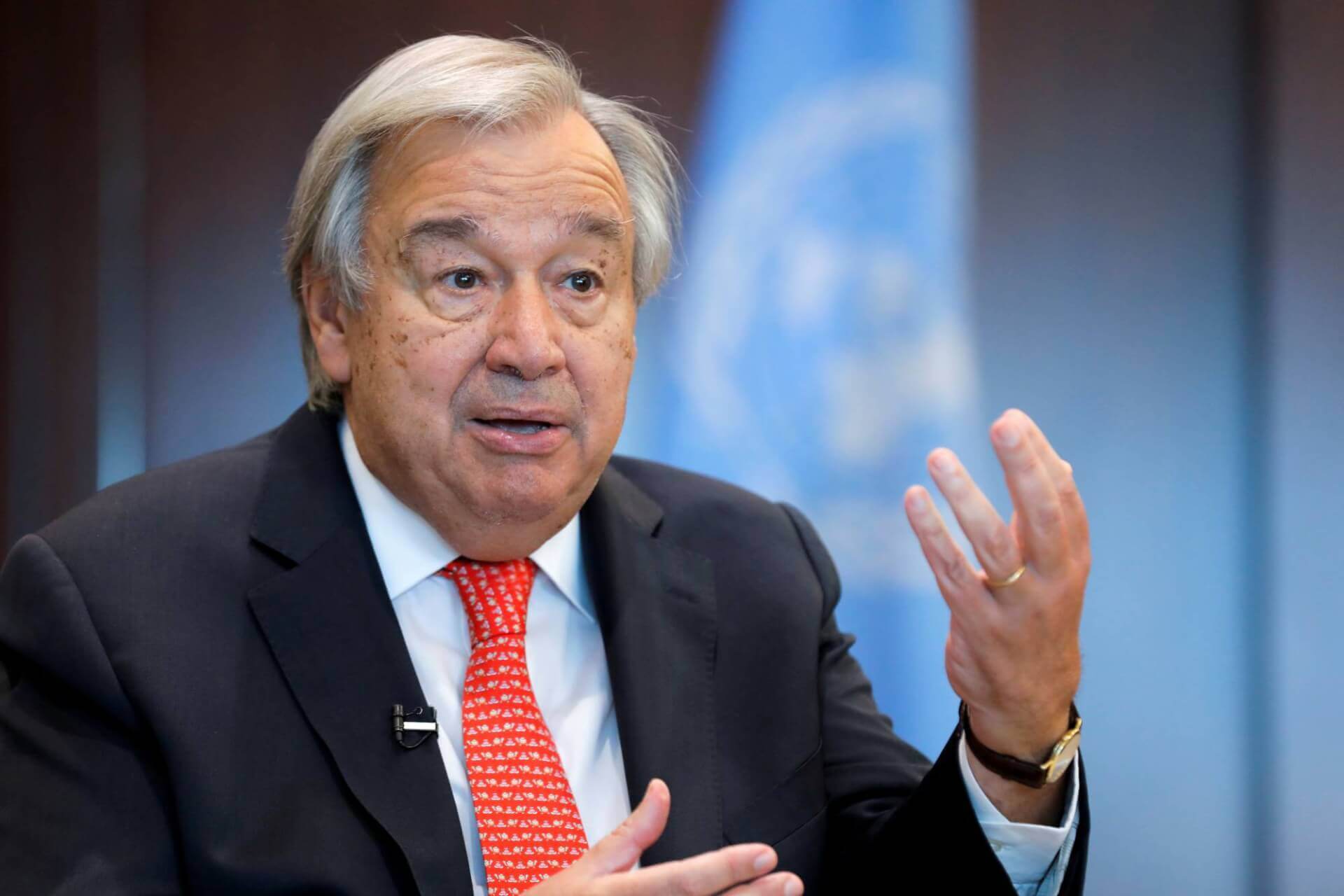On Wednesday, the United Nations (UN) Secretary-General António Guterres warned of the ongoing economic crisis in Afghanistan and urged the international community to release frozen funds that could facilitate the provision of humanitarian aid to the war-torn country. The statement was made at a meeting of the UN Security Council that met to clarify the mandate of the organisation’s mission in Afghanistan, which is set to expire on March 17.
Speaking of the ongoing humanitarian crisis, Guterres notified that the country was “hanging by a thread,” and that a majority of Afghans are facing “extreme levels of hunger” currently with families being forced to sell their children to purchase food.
This statement comes just days after a chilling story of an Afghan family forced to sell their daughters to purchase food had gone viral. The incident was also highlighted by China’s UN Ambassador Zhang Jun, who spoke of a woman who “sold her two daughters and a kidney” to feed her family.
To prevent further deterioration of the crisis, Guterres urged the countries to “step up support for the people of Afghanistan.” This included the need to work towards releasing American aid funds that continue to be frozen by the World Bank and the United States (US) government. Currently, aid worth about $9.5 billion, which was given to the previous West-backed government, remains blocked since the Taliban’s takeover in August.
Daily life has become a frozen hell for the people of Afghanistan.
— António Guterres (@antonioguterres) January 26, 2022
As a matter of moral responsibility — and regional and global security and prosperity — we cannot abandon them.
They need peace. They need hope. They need help. And they need it now. pic.twitter.com/iv66ZIaKgg
Furthermore, he also called upon international organisations to “jump-start Afghanistan’s economy through increased liquidity.” Without this, he said that “lives will be lost, and despair and extremism will grow.”
Countries have previously raised concerns about releasing aid to Afghanistan over fears of the funds being misdirected and misused. For further accountability for the released funds, Guterres declared that his team was ready to collaborate with nations and set up a system to ensure that the funds aren’t diverted.
However, he clarified that a critical precondition to the international community’s support is the Taliban’s commitment to the rights and freedoms of women in the country. “We urge the Taliban to seize this moment and garner international trust and goodwill by recognising – and upholding – the basic human rights that belong to every girl and woman,” he said.
In this regard, the UN Chief called for the release of women activists, who were arbitrarily detained or abducted by the Taliban for protesting against the restrictions on their work and education. He also highlighted that the Taliban should further a wider discussion on national reconciliation that sees the participation of ethnic and religious minorities of the country.
Meanwhile, on Tuesday, a Taliban delegation concluded its three-day meet in Oslo, wherein the group held discussions about the current humanitarian crisis with several Western officials and Afghan civil society members. While the group pressed for the release of frozen Afghan assets and funds, Western officials pushed for the Taliban to protect critical rights and freedoms of minorities, specifically women.
However, the situation for minorities in the country remains dismal. According to NBC News, members of the LGBTQ community in Afghanistan have been increasingly facing threats and have also been beaten and raped since the Taliban’s takeover in August.
Furthermore, a majority of regions in Afghanistan have witnessed restrictions on girls seeking to attend school beyond grade 7. Except for 10 out of 34 provinces, girls have not been allowed from attending classes in state-run educational institutions.
Women have also been banned from travelling without a close male relative for long distances. In addition, the Taliban had released guidelines that banned networks from broadcasting content featuring female actors. Moreover, the group’s cabinet does not have a single female member.
Besides, just this week, the Afghan Ministry for the Promotion of Virtue and Prevention of Vice launched a poster campaign encouraging women to wear a burqa or hijab. As a result, several women in Kabul took to the streets and protested against the campaign as it highlighted the Taliban’s continued attacks on women’s rights and freedoms even as the country struggles to mitigate its economic crisis.

